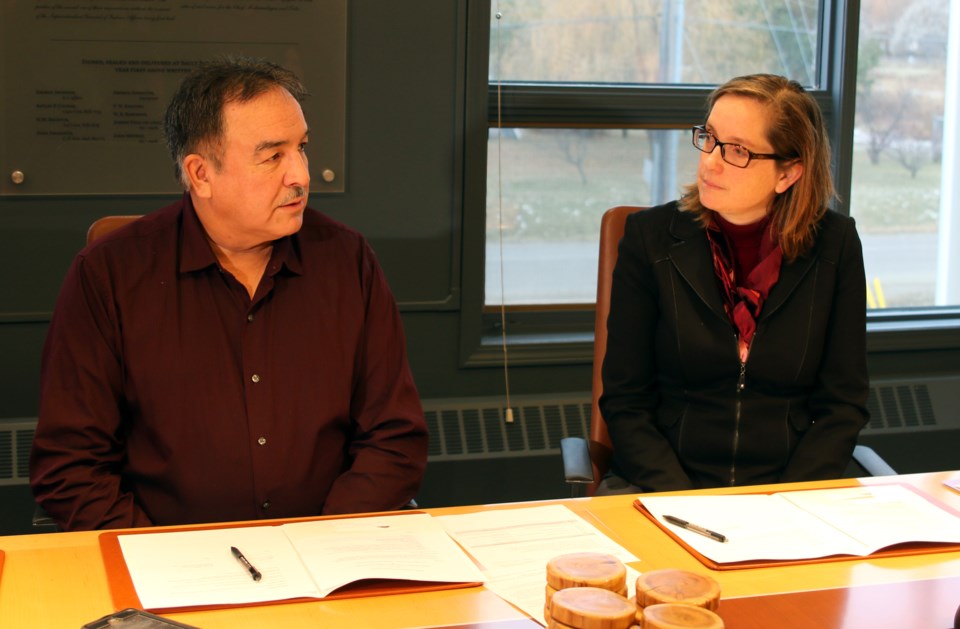FORT WILLIAM FIRST NATION, Ont. – With the opioid crisis spreading to communities across Canada, healthcare officials and community leaders are looking not only at preventative measures to help those who may be affected, but reducing harm to those already struggling.
Fort William First Nation and the Thunder Bay District Health Unit Superior Points Harm Reduction Program are partnering to provide harm reduction programming to the First Nation community. The partnership was nine years in the making and was formalized with the signing of a memorandum of understanding on Monday.
According to Fort William First Nation Chief, Peter Collins, this partnership was badly needed in the community, which has experienced the tragic outcomes of substance abuse.
“We recently lost three young guys, ages of 28 and 29 and was due to overdoses,” Collins said. “It’s a tragic moment in our community but we have to continue to work and try to create a safer environment.”
The partnership with Superior Points will allow harm reduction services, such as resources and training, supplies, needle distribution, safe inhalation kits, and naloxone kits to be made more readily available to health care providers in Fort William First Nation.
Janet DeMille, medical officer of health at the Thunder Bay District Health Unit, said harm reduction is the final pillar of a drug strategy that includes prevention, enforcement, and access to treatment.
“Harm reduction is a really key component of addressing any issues related to drugs and substance abuse,” she said. “What this deals with is provide services to individuals who are struggling with addictions. Because of that they experience many harms associated with addiction.”
People struggling with addiction may be more susceptible to other health problems, such as the risk of infection or hospitalization.
“Not only that, there is a lot of stigma against those people,” DeMille said. “There is a victim blaming and those individuals have a lot of trouble accessing health services, even to manage their addictions.”
Harm reduction is meant to provide services to allow individuals struggling with addiction to take care of their own health without any judgement, and then when ready, to access services to address the issue of addiction.
“Many people do access that,” DeMille said. “Reducing the harm, as well as supporting those people in accessing services they may want to need, is one of the key values of harm reduction.”
According to Collins, Fort William First Nation continues to work with the people of the community on preventive measures, but he understands that the opioid crisis is taking place across the country, including here in the north.
Collins said the First Nation works hard to provide positive opportunities for the people and he believes this new partnership is a step in the right direction.
“We have to continue to take on the task and take on the battle,” he said. “We are trying to empower our people and drive them into a healthy way of living.”
